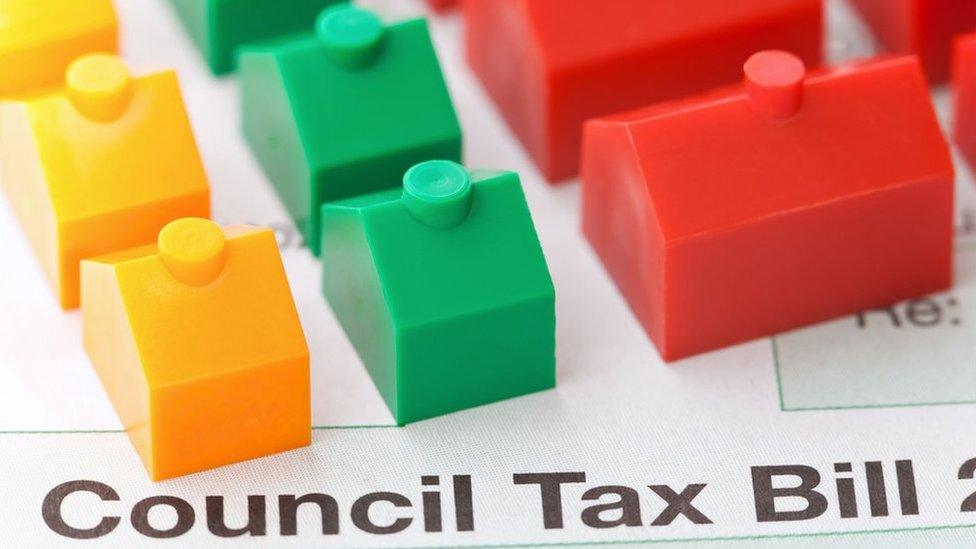Check tax bill advice as residents overpay £700k

There is no legal requirement for local authorities to tell people if they have overpaid their council tax
- Published
Residents in one Welsh county have been urged to check their council tax bills after the council was found to have almost £700,000 in its coffers from overpayments.
Powys Council held the extra money as of 10 May, a Freedom of Information request found.
There is no legal requirement for councils to notify individuals when they overpay.
But the Welsh Local Government Association said unclaimed overpayments stayed with the councils unless they are refunded.
Council tax is normally paid in 10 monthly payments from April to February each financial year, according to the Local Democracy Reporting Service (LDRS).
Authorities issue a closing bill if there change in circumstance such as moving house and if there is any credit it should count as payment towards a new bill.
The Limitation Act 1980 would “signify” that taxpayers have six years to try and claim back the overpayment.
Eventually any unclaimed overpayments could become part of a council’s finances to be used on services.
A WLGA spokesman said: “After a period of time councils probably will have a ‘write back’ provision in their write off policy to absorb the balances.
“Some authorities report that they review such credits after eight to 10 years.”

Some councils review council tax credits ever eight to 10 years, the WLGA says
The WLGA advised residents to check their council tax bill and if it is in credit to contact their local authority and request a refund.
“Simply enquire with the local authority providing as many details as possible in relation to the account/property the taxpayer is concerned about," it said.
“Records extend to 1993. Where a clear entitlement to the money exists councils would reverse the write back and refund.”
There are about 64,000 residential properties subject to council tax in the county.